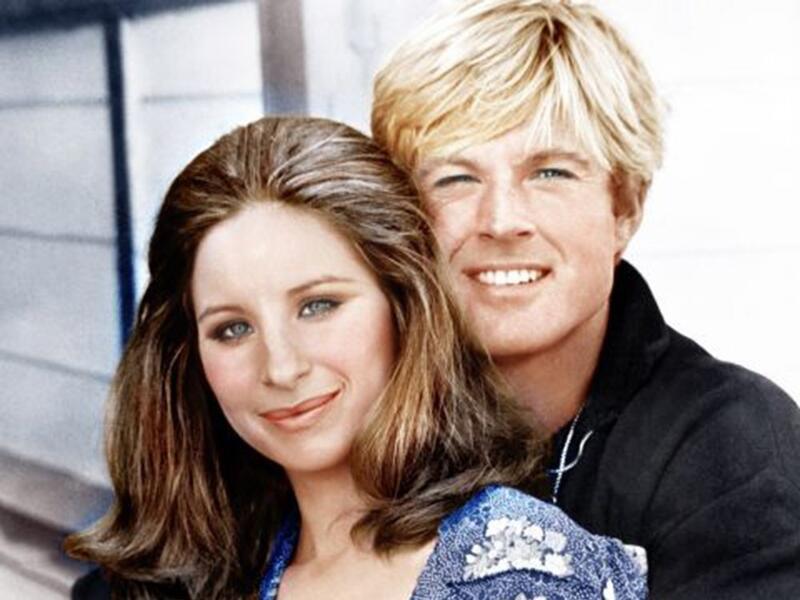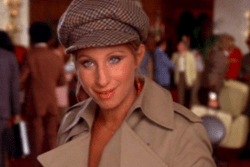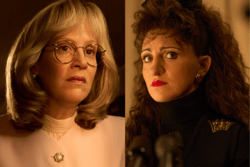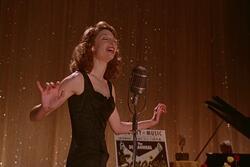In 'The Way We Were,' The Political is Personal
I am a picky woman when it comes to most of life’s little tests, particularly the romantic ones. One time, I didn’t go on a second date with a guy because I said something offhand about Brooke Shields and he said, “Oh, is that one of your friends?” I figured if we weren’t compatible pop culturally, we wouldn’t be compatible in any other way, either. I don’t particularly care about Brooke Shields, but that’s beside the point—it’s what “not knowing who Brooke Shields is” represents.
Katie Morosky, the spitfire Jewish communist Barbra Streisand plays with such tenderness in the criminally underappreciated 1973 film The Way We Were, might have some feelings about the way I dismissed this man outright. My date wasn’t Robert Redford, who stars opposite Streisand—no one is—but Katie might have encouraged me to enjoy the ride, even if the destination wasn’t a perfect, lifelong partnership.
The Way We Were is tragic because it suggests even people who love each other passionately can’t surmount their political differences. Despite being nearly 50 years old, the film strikes a shockingly modern chord in Katie’s ultimate assessment of Hubbell Gardner, Redford’s beautiful, apolitical coward: that people are their principles, and Hubbell has none.
The Way We Were spans three decades in Katie and Hubbell’s relationship, beginning when they are college students in the late 1930s and ending in the 1950s, the heyday of the Hollywood blacklist, when suspected Communists were caught up in a witch-hunt and barred from working public-facing jobs, particularly in Hollywood and Washington, D.C.
Katie is a bold, intense, political Jew who spends her life protesting and working a million odd jobs. Hubbell is a preppy, wealthy, fratty WASP who dreams of becoming a writer. Where Katie cannot be tied down to one particular vocation, lest she sacrifice the time she spends on political volunteering and working for the greater good, Hubbell simply wants to become beloved and acclaimed. They exist on opposite ends of an ambition spectrum—not because they want to be so different, but because they were born into extremely different circumstances.
A recurring theme in this film is one of rigid, established social stations. Katie was not born into an apolitical body the way Hubbell was. He does not understand that she does not have the luxury of disengaging—when she’s “embarrassing him” by passionately defending her deeply-held political beliefs in public, she’s just daring to show Hubbell’s friends that she is uncomfortable with their lack of empathy. When Hubbell’s (terrible) best friend JJ sarcastically refers to Katie as “a million laughs,” he’s reacting to the way Katie humorlessly defends the people and values she holds dear. There is no space for emotional outbursts in Hubbell’s valueless, sanitized, privileged world, a world that can’t and doesn’t actually exist for someone like Katie. It’s no wonder she’s not laughing.
Why would Katie fall in love with someone like Hubbell to begin with? She isn’t shallow; it isn’t just because he looks like Robert Redford. Katie is drawn to Hubbell because of the strength and self-awareness of his words. In creative writing class, Hubbell shares a story that begins, “In a way, he was like the country he lived in. Everything came to easily to him. But at least he knew it.” Hubbell’s writing challenges Katie’s perception of his easygoing lived experience, and it’s only through his work that the theory-driven Katie is finally able to get to know the person behind the performance.
But the Hubbell on the page is a work of fiction. In reality, Hubbell is too frightened of challenging what other rich, white people think about him to live and breathe the values he writes about. Throughout the film, Hubbell relies on the approval of his similarly privileged and disengaged college ex-girlfriend to confirm that dating Katie won’t impact the way he’s perceived by his peers. At her core, Katie is her principles; at his core, Hubbell is a performance—of whiteness, of masculinity, of passive conservatism.
The love is real, though. Streisand and Redford share pristine, all-time-great onscreen chemistry, and, as a viewer, you find yourself really rooting for these two troubled souls. But loving someone doesn’t always mean treating them the way they deserve to be treated. “You expect so much,” Hubbell says to a devastated Katie after he’s broken up with her for the first time. “Oh, but look at what I’ve got,” she answers, eyes beaming. In her pursuit of a fairer, kinder world, Katie is uncompromising in her beliefs, in what she holds closest to her heart—and that includes Hubbell. She will not give up on him as long as she still believes in him.
Katie pays a price for her deep, passionate loyalty to Hubbell. When he won’t behave the way she knows he should, she blames herself for not being a good enough partner. When Hubbell threatens to leave her, Katie insists she’ll take a “Protestant cooking class.” After he’s revealed an infidelity— with the lingering college ex—Katie reflects, “I don’t have the right style for you, do I?” She’s nodding towards her Jewishness here—one of several aspects of her identity that marks her as separate from Hubbell and his friends. “No, you don’t have the right style,” he answers—but it’s only because he doesn’t have the courage to go on loving her. He never asks her to change, but he retracts his affection every time she breaks out of the narrow leeway he’s allowed for her personality, drive, and principles. Hubbell lives inside a box, and Katie cannot be boxed in.
Katie finally understands Hubbell for who he is while watching a cut of the film adaptation of his novel. We don’t see the film, but we understand that it’s undergone significant changes to appease the increasingly conservative, Red Scare-era studio system. Katie fell in love with Hubbell through his work. If she no longer recognizes that work, what has become of the person she loves? Did he ever exist?
The Way We Were might be an old film, but it couldn't be more relevant to today’s world. Much like in the pre-and-post-war eras depicted in the film, people today seem almost irreparably divided across political and ideological lines. The film wrestles with the intersection of love and political beliefs and comes to the conclusion that civility alone cannot sustain loving relationships where core principles are misaligned. Ultimately, Katie loved Hubbell because she was idealistic and believed in a version of him he’d never show in public. Hubbell loved Katie because he was enamored with the idea that someone smart and principled could make the mistake of believing in him. We can see what they couldn’t—they were never meant to be.








Wow, what an insightful review of the characters in this beloved film. I still root for them.